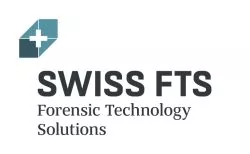I've been in this business for many years, and I know that no one rejoices and pops a bottle of champagne when a litigation or investigation comes knocking on your door. However, it doesn't need to be a daunting process if you have the right help.
For companies going through this experience for the first time, picking the right service provider can be challenging. One of the reasons for that is, you have to blindly trust a complete stranger with your most intimate company data. Furthermore, inexperienced service providers can get overwhelmed by the scope and complexity of the task, which can lead them to do redundant or unnecessary work, charge you for service that was not necessary, or piling on junior analysts that a more experienced provider wouldn't have needed.
1. Determining the Scope of Your Case: Start as Micro-Invasively as Possible
An inexperienced eDiscovery provider will try to collect as much data from your company, from as many different custodians in your team, as possible, in order not to miss anything. This ends up inflating costs from the beginning. However, this approach is not necessary. Instead, a provider can initiate a legal hold on data that might be required, without processing it or reviewing it. In our practice, we then make a proper Early Case Assessment, which allows us to start as micro-invasively as possible. We are then able to focus time and resources on the actual issues, instead of simply trying to cover everything.
2. Is the Pricing Model Transparent and Sensible?
A good friend of mine, who is an investor, once told me, "if someone tries to sell you a financial product and you don't understand how it works in three minutes, don't buy it!"
I believe it is similar with eDiscovery pricing. Try to get a comprehensive pricing scheme that makes sense to you. It is justifiable for service providers to charge for services like password and deleted file recovery separately, because these often require more experienced staff. But does it make sense having necessary services like imaging and OCRing charged separately? These things mainly require computer time and the costs of executing them are marginal. Therefor a per-page-price isn't justifiable in my opinion. Furthermore these products are usually essential and you most likely will end up paying for them in hosting, since they can significantly increase the data volume.
Also, if vendors offer "creative" approaches such as only uploading the extracted text without the native files and images at almost no charge, make sure that you are not up for a surprise, if your documents have to be produced at one point. You will then need the natives and images, and getting them in later might not be cheap.
Finally, it's important to ask a potential vendor if there's any chance for future, hidden fees that have not already been discussed. Oftentimes a surprisingly low quote hides a bunch of equally surprising fees down the road.
3. How Sophisticated is Their Quality Control?
When dealing with potentially millions of files, manual quality control will often be wildly ineffective and inefficient.
Does the services provider you're considering have sophisticated, automated quality control software monitoring their work?
At Swiss FTS, we use proprietary software that knows what proper data should look like, and is able to identify deviances and corruptions in the data automatically. This allows us to focus our human eyes on the files and data that are most likely to be problematic, rather than fishing blindly into a vast sea of hundreds of thousands of files.
4. What Certifications and Track Records Do Their Staff Have?
There are dozens of providers out there. I recommend choosing a providers that invest in their staff, by getting them properly trained and certified on the tools that they are using. This is generally a good indicator that they are up to date on technology and actually know how to use it properly.
I also recommend looking at the rates of the specialist that will be staffed on your matter and have a closer look at their experience. A very experienced and knowledgeable specialist might be more expensive than a junior. But if you consider that she or he might do the work of three juniors in less time with better quality, it might be worth exploring that option. Many juniors are actually being trained on the job, at your expense. Do you really want to fund the job training of the people who are handling one of the most sensitive tasks in your company?
5. Make Sure Your Provider Meets and Involves Your IT Team Before Closing the Deal
Often, providers only send sales staff when pitching their services. However, it is crucial that their IT staff and yours meet, before closing the deal, to make sure that their approach will not create unnecessary headaches for your IT team. Retrieving and preparing your data can be challenging. Mostly there are technical hurdles that need to be overcome. That is why it is advisable to bring the service provider's and your IT team to the table. Your IT team knows your IT landscape the best, so if you involve it, chances are good that data collection and issue handling run smooth.
Finally: Insist on Clear Answers to Your Questions
These five considerations should give you basic awareness of what you should look at in an eDiscovery project, and allow you to question and understand your service provider. Don't let yourself get scared off by technical mumbo-jumbo. Insist that your service provider gives you straight, sensible and clear answers. This contributes to building transparent and sustainable relationships with your service provider, which will ultimately lead to higher quality results at fair prices.
The content of this article is intended to provide a general guide to the subject matter. Specialist advice should be sought about your specific circumstances.

